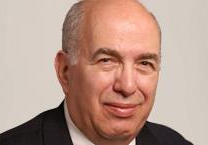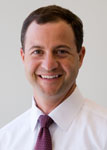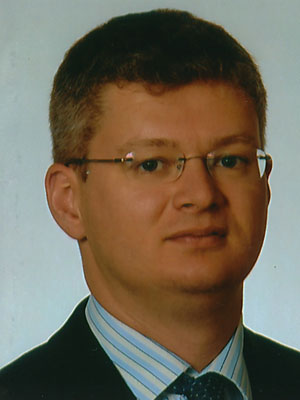Have You Got an Edge over the Markets?

Most literature or media on finance today tell us how to make money. We are bombarded with stock tips about the next Apple or Google, faced with articles on how India or biotech investing is the next hot thing, or told how some star investment manager’s outstanding performance is set to continue.
The implicit message is that only the uninformed few fail to heed this advice and end up poorer as a result. We wouldn’t want that to be us!
What if we started with a very different premise? I suggest the premise that markets are actually quite efficient.
Even if some people are able to outperform the markets, most are not. In financial jargon, most people do not have an edge over the financial markets, which is to say that they can’t perform better than the financial market through active selection of some investments over others.
Embracing and understanding this absence of edge as an investor is a key premise of the investment methods suggested in my recent book “Investing Demystified” and something I believe is critical for all investors to understand.
Consider these two investment portfolios:
- Portfolio A: S&P 500 Index Tracker Portfolio, like an ETF or index fund.
- Portfolio B: A portfolio consisting of a number of stocks from the S&P 500 — any number of stocks from that index that you think will outperform the index. It could be 1 stock or 499 stocks, or anything in between, or even the 500 stocks weighted differently from the index (which is based on market value weighting).
If you can ensure the consistent outperformance of Portfolio B over Portfolio A, you have an edge investing in the S&P 500, even after the higher fees and expenses associated with creating Portfolio B. If you can’t, you don’t have an edge.
At first glance, it may seem easy to have an edge in the S&P 500. All you have to do is pick a subset of 500 stocks that will do better than the rest, and surely, there are a number of predictable duds in there.
In fact, all you would have to do is to find one dud and omit that from the rest, and you would already be ahead. How hard can that be? Similarly, if you could pick even one winner, you would also be ahead.
Although the examples in this piece are from the stock market, investors can have an edge in virtually any kind of investment all over the world. In fact, there are so many different ways to have an edge that it may seem like an admission of ignorance to some to renounce all of them. Their gut instinct may tell them not only that they want to have edge but also that the idea of not even trying to gain it is a cheap surrender. They want to take on the markets and outperform as a vindication that they “get it” or somehow possess a superior intellect or street smart. Whatever works!
Who Is It Exactly That You Have an Edge Over?
Obviously, you have an edge over the other market participants, but instead of a faceless mass, think about who they actually are and what knowledge they have and what analyses they undertake.
Imagine the portfolio manager of a technology-focused fund for a highly rated mutual fund/unit trust, who, like us, is looking at Microsoft. Let’s call the fund Ability Tech and the fund manager Susan.
Susan and Ability Tech have easy access to all the research that is written about Microsoft, including the 80-page in-depth reports by research analysts from all the major banks — such as Morgan Stanley and Goldman Sachs — that have followed Microsoft and all its competitors since Bill Gates started the business.
The analysts know all of the business lines of Microsoft, down to the programmers who write the code and the marketing groups that come up with the great ads. They may have worked at Microsoft or its competitors and perhaps went to Harvard or Stanford with senior members of the management team.
On top of that, the analysts speak frequently with the trading groups of their banks, who are among the market leaders in the trading of Microsoft shares and can see market moves faster and more accurately than almost any trader.
All research analysts talk to Susan regularly and at great length because of the commissions Ability’s trading generates. Microsoft is a big position for Ability, and Susan reads all the reports thoroughly. It’s important to know what the market thinks. Susan enjoys the technical product development aspects of Microsoft, and she feels she talks the same language as the techies, partly because she knew some of them from when she studied computer science at MIT. But Susan’s somewhat “nerdy” demeanour is balanced out by her “gut feel” colleague, who sees bigger-picture trends in the technology sector and specifically sees how Microsoft is perceived in the market and its ability to respond to a changing business environment.
Susan and her colleagues frequently go to IT conferences and have meetings with senior people from Microsoft and peer companies, and they are on a first-name basis with most of them. Microsoft arranged for Ability to visit the senior management at offices around the world, both in sales and development, and Susan also talked to some of the leading clients.
Like the research analysts from the banks, Ability has an army of expert PhDs who study sales trends and spot new potential challenges (they were among the first to spot Facebook and Google). Furthermore, Ability has economists who study the US and global financial systems in detail because the world economy will affect the performance of Microsoft. Ability also has mathematicians with trading-pattern recognition technology to help with the analysis.
Susan loves reading books about technology and every finance/investing book she can get her hands on, including all the Warren Buffett and value investor books.
Susan knows everything there is to know about the stocks she follows (including a few things she probably shouldn’t know, which she keeps close to her chest), some of which are much smaller and less well researched than Microsoft. She has one of the best ratings among fund managers on a couple of the comparison sites but doesn’t pay too much attention to that. After doing this for more than 20 years, she knows how quickly things can change and instead focuses on remaining at the top of her game.
Do You Have an Edge over Susan?
Do you think you have an edge over Susan and the thousands of people like her? If you do, you might be brilliant, arrogant, the next Warren Buffett or George Soros, lucky, or all of the above.
If you don’t, you don’t have an edge. Most people don’t. Most people are better off admitting to themselves that once a company is listed on an exchange and has a market price, they are better off assuming that this price reflects the stock’s true value, incorporating a future positive return for the stock but also a risk that things don’t go as planned.
So, it’s not that all publicly listed companies are good — far from it — but rather that we don’t know better than to assume that their stock prices incorporate an expectation of a fair future return to the shareholders given the risks. We don’t have an edge.
When I ran my hedge fund, I always thought about the fictitious Susan and Ability. I would think of someone super clever, well connected, product savvy, and street smart who had been around the block and seen the inside stories of success and failure. And then, I would convince myself that we should not be involved in trades unless we clearly thought we had an edge over those Susans of the world. It is hard to convince yourself that having this edge is possible and, unfortunately, even harder sometimes for it to actually be true.
-you can read more about this in my recent book “Investing Demystified” which is available on Amazon and elsewhere.
If you liked this post, don’t forget to subscribe to Inside Investing via Email or RSS.
Please note that the content of this site should not be construed as investment advice, nor do the opinions expressed necessarily reflect the views of CFA Institute.
Photo credit: istockphoto/DNY59



Lars –
Great commentary on your past experiences and how living it first hand brought you to become an avid indexer. I always find myself drifting once in a while toward the case for active management from the noise in any media outlet, but time and time again, indexing proves to be the best and most cost effective strategy.
Very good read!
I believe it is possible to have an edge by having a multifaceted interaction with a company. It is not enough to have access to Microsoft executives and briefings, it is important to use its products, phones, databases, get a sense of its integration, how it is perceived not only by business colleagues but also by GenY users, Boomers and others.
Do not invest in retail and commodities unless you do the grocery shopping and feel the cycles and trends like the price of apples or cheese. I Believe the multifaceted view can provide an edge.
I was told that most people should have a core portfolio based on business fundamentals and an efficient market. Then there should be a satellite portfolio that engages arbitrage through good due diligence and sound analysis. Optimizing active and passive management techniques and to find the right mix at different times is a challenging but rewarding exercise for the willing and able.
Black swans will be black swans.
There is a lot to be said for a passive investing approach, it’s undoubtedly broadly true that it is the best investment strategy for most investors most of the time. Particularly small investors. Although it is possible for an investment professional to achieve an edge, it makes sense if a professional concentrates on one small corner of the market it may be possible to beat the other participants. In any competition someone has to win! But identifying these people in advance is very difficult for an investor. I’m less sure about ‘multifaceted interaction with the company’ it sounds like a euphemism for another type of activity to me…
My edge is I don’t have to buy or sell one of the companies I own just because S&P changes the composition of the index. In fact, I don’t have to buy or sell. Many fund managers are forced to buy and sell. However, your thesis is valid for most people.